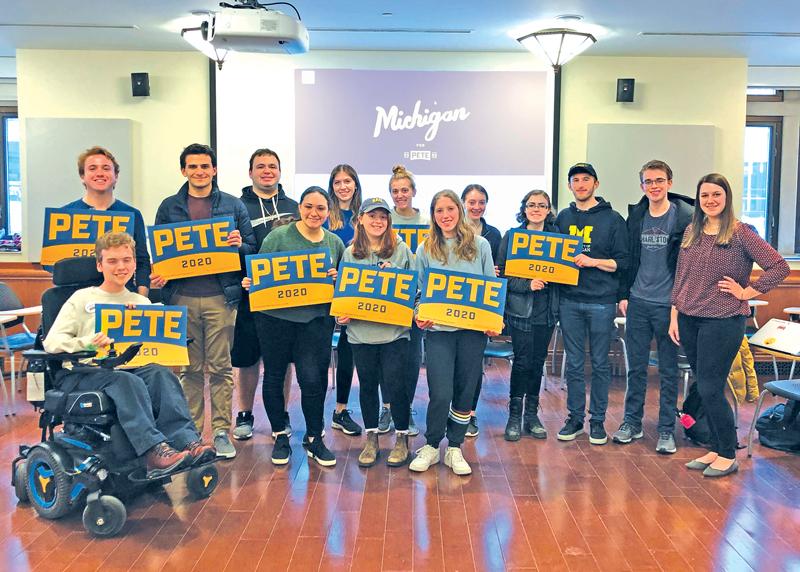Interest in the March 10 Democratic presidential primary is “at the level you normally see in October [before a general election],” says Kestenbaum. His office has printed more than 25 percent more ballots than it did in the last presidential primary. A month before the vote, more than 21,000 people had requested absentee ballots, more than double the number at the same point in 2016. (Kestenbaum credits some of that to the 2018 state ballot proposal that changed the law to make it much easier to vote absentee.)
Bernie Sanders beat Hillary Clinton in Washtenaw County in 2016, and Kestenbaum expects Sanders and fellow senator Elizabeth Warren will get most of the Ann Arbor vote this time. State senator Jeff Irwin agrees, texting that “Buttigieg, and Bloomberg or Biden round out the top five from what I’m hearing at meetings and on social media.” (Neither Irwin nor Kestenbaum has endorsed anyone.)
Although Warren was said to be faltering after a single-digit showing in the New Hampshire primary, her local cheering section includes many veteran Democrats. “Wouldn’t it be wonderful if, on the hundredth anniversary of women’s suffrage, a woman was elected president?” asks Janine Easter, who twenty-five years ago founded the Ann Arbor chapter of the Hillary Rodham Clinton Fan Club. Former state senator Lana Pollack and Ann Arbor mayor Christopher Taylor were among those signed up for a $100 to $500 February fundraiser for Warren. “I don’t have any friends supporting Bernie,” says former drain commissioner Janis Bobrin. “My nephew is. The young people like him.”
That includes Ardis Shapiro, a leader of U-M Students for Bernie 2020, who told the Michigan Daily that Sanders “is the only candidate who understands the urgency of revolutionizing our economy to combat climate change.” She and others in the group went through “Students for Bernie Summer School,” an online training program that encourages “friend to friend organizing.”
A volunteer for Pete Buttigieg says that his candidate’s narrow victory in Iowa noticeably increased signups on the state campaign’s website. At a Gallup Park meeting room in early February, about twenty Buttigieg volunteers, laptops in hand, broke into groups to train for different assignments–making phone calls, texting, using relational organizing tools, sending postcards, and personal conversations.
The same afternoon, former U-M football stars Braylon Edwards and Dhani Jones helped draw an overflow crowd to the opening of Mike Bloomberg’s downtown office. Retiree Chuck Edwards said he’d gone to Bloomberg’s website “after I saw a white supremacist get the Medal of Freedom” (President Trump so honored Rush Limbaugh during the State of the Union address). Edwards thought the billionaire had the toughness to take on Trump. “Much as I love Michelle Obama, ‘When they go low, we go high,’ uh-uh,” Edwards said, “you don’t take a knife to a gunfight.”
“I’m neutral,” congresswoman Debbie Dingell declared but stressed, “we have got to get rid of Donald Trump.” She said she appreciated that “no matter what happens, this office will be here till November”–Bloomberg has promised to continue to fund his operation to support whomever wins the nomination.
Although the ballot lists eighteen Democratic candidates, after the New Hampshire primary only seven were still campaigning. The field may shrink further following Super Tuesday–fourteen states, including California, will weigh in a week before Michigan does.
Almost all of those interviewed predicted that internecine tensions will give way to party unity once a candidate is chosen at the Democratic convention in Milwaukee in July. “l think people will support anyone against Trump,” says former councilwoman Joan Lowenstein.


